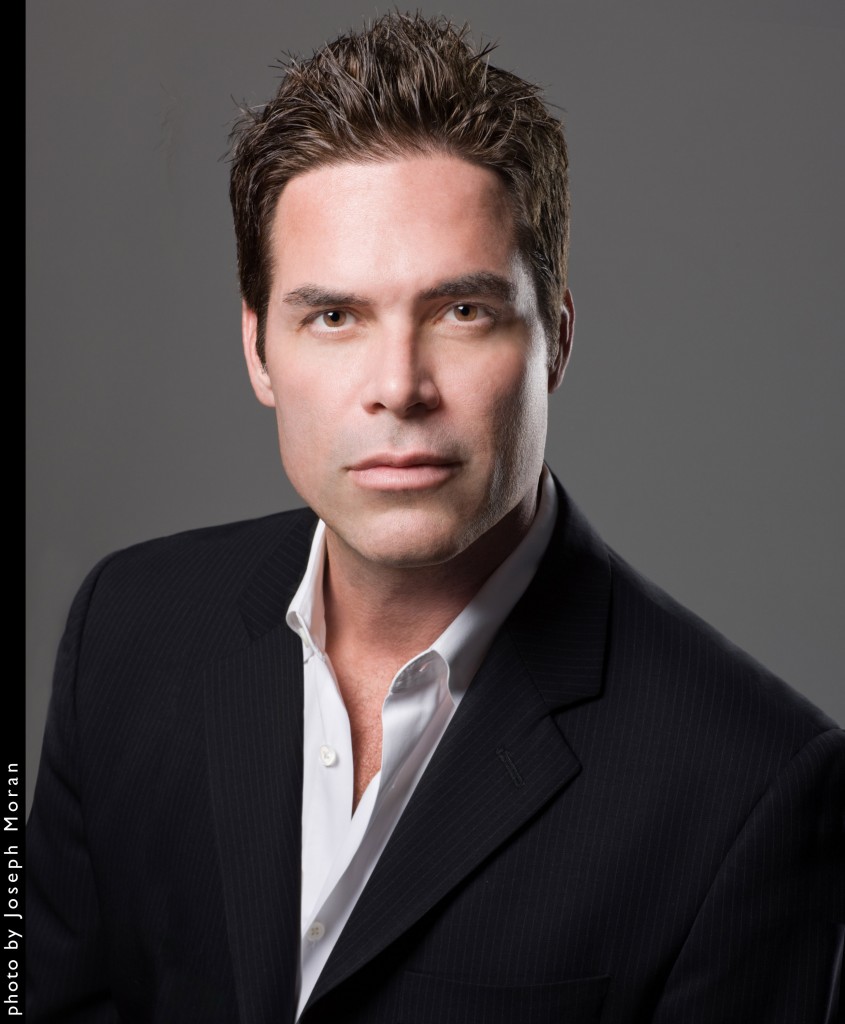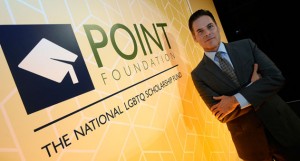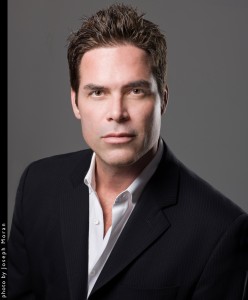Supporting and Empowering our LGBT Young People

By Jorge Valencia,
Executive Director and CEO
Point Foundation
From a talk given at the Los Angeles Affirmation Conference in January 2016.
Good evening.
It’s such a pleasure and a real honor to be here with you. Just a couple of things missing from my bio that I believe are relevant to me joining you here tonight:
- I was born win Los Angeles into the Mormon faith
- I grew up in Texas
- I attended and graduated from BYU – a LONG time ago. Who knows, it was probably only called BY, at the time
- And I served a mission in Porto Alegre, Brazil
I mention this, because in preparing for my comments on the topic, Supporting and Empowering our LGBT Young People, I wanted you to know that supporting and empowering Mormon LGBT young people requires a different approach, in my humble opinion.
Like many of you, I grew up in a home that valued:
- Family
- Love
- God
- And the gospel
These principles guided my every move in elementary school, in junior high and high school. My mission. My college career. My professional life and my interactions with others.
As a Latino, I was also taught at a very young age to respect my elders and to take caution in questioning authority – principles which are also reflected in Mormonism. As such, when adults (inside or outside the church) spoke or gave an opinion, I took it to be the truth – the only option. So, you can imagine the sadness and despair I felt when I recognized that I was “different” from my school and church peers; and our nation’s leaders, school educators, church leaders and even my own family members were making it very clear that this “difference” was wrong, abominable, disgraceful and destined to a tragic end.
Like many who find themselves on the outside and without support, I sought to find areas in which I could conform to that which was viewed as “normal,” “right” and “celestial” in nature. For a number of years, it was tough. But I tried. I joined a Little League baseball team. After a while – when you’re told you throw like a girl, you’re ALWAYS the last one chose on a team and your own father is embarrassed to take you to practice, well…it’s time to find another hobby. I tried football, basketball, swimming and tennis. Heck, I wasn’t even good at kickball.
My dad, to his credit, attempted to find other areas in which I might succeed. I took piano for 5 years (not sure I liked it much, but hey – I didn’t have to worry about being rejected by team members) and finally I found a place where other misfits could be found – band and drama. In the end, it was here, where my confidence began to build.
- First way in which we can support and empower our LGBT young people? Help them find their confidence in a talent or hobby
The reason this is so important, is because, when all you’re exposed to is a recognition of your “failures” – whether external or internal – and you’re too young to understand that conformity has its limitations, desperation and depression can consume a young life and NOTHING good ever comes from those two words. The horrific suicide rate among our young LGBT people is proof of this.
Yeah, I failed at sports. But the fact that my dad encouraged me to find other areas, helped me build a bit of confidence. A confidence that buoyed me through those tough years when I believed that my internal difference would never be recognized, accepted or legal. And confidence leads to self-love – something often missing from our LGBT youth, especially, our Mormon youth who are taught to aim for perfection.
One just needs to look to our times – the obsession with celebrity, possessions, and looks (we’ve all seen the ads) – to see how overwhelming it is to be a Mormon LGBT youth who is expected to be perfect in their faith AND perfect in the LGBT community.
Now, we know all too well what it’s like to give of oneself. We’re taught this in primary, at our youth conferences, on our missions, through home teaching and visiting teaching and through our volunteerism in church callings. Indeed, we must take heed of the words of Paul in Acts 20:35 that reads in part: I have shewed you all things, how that so laboring ye ought to support the weak, and to remember the words of the Lord Jesus, how he said, It is more blessed to give than to receive. Or in Romans 15:1 which reads: We then that are strong ought to bear the infirmities of the weak, and not to please ourselves. So it’s no wonder we have a difficult time grasping (as I’d hope anyone would) when we hear news of LDS loved ones, who are immersed in the “good work,” are sometimes driven to ending their lives.
From my personal experience, I can attest to this dark place. At a point in my college life, when to the outside world I had everything at my disposal – a beautiful girlfriend, a position in my ward’s Elders Quorum and recently voted as a Student Body Vice President – what was NOT visible to the outside world was the emptiness, the loneliness that had been building since I first realized that I was gay.
We are taught – rightfully, so – that we should care for others. But how easy it is to forget the last part of Matthew 22:36-39 when the Savior is asked: Master, which is the great commandment in the law? Jesus said unto him, Thou shalt love the Lord thy God with all thy heart, and with all thy soul, and with all thy mind. This is the first and great commandment. And the second is like unto it, Thou shalt love thy neighbour as thyself.
- Another way in which we can support and empower our LGBT youth? Help them gain self-love and pride
This begins by acceptance of oneself as a INPERFECT being, not a PERFECT being – a human being capable of accomplishing great things and also capable of making mistakes. Father in Heaven know this, which is why the law of forgiveness exists and the very reason Jesus Christ was sent as our Savior – “Savior” being the important word here. Allow our young people to make mistakes, to own them, learn from them and grow. Self-love can follow growth.
Now we know that pride carries two meaning. And I’m not referring to the negative connotation of having an inflated sense of one’s personal status or accomplishments. But rather, the positive connotation referring to a satisfied sense of attachment towards one’s own or another’s choices and actions – a product of praise, independent self-reflection and a fulfilled feeling of belonging.
Growing up, my parents taught me to take pride in my Mexican heritage, as well pride in my religion. They shared and taught me traditions particular to my heritage and to being a Mormon – trust me, there was plenty for me to absorb and learn to take pride in. However, even the most accepting of heterosexual parents aren’t fully prepared on how to instill a sense of pride for their LGBT child – often stepping into an arena they weren’t familiar with until they learned of their child’s sexual orientation. But we can and must teach our LGBT youth about their history and great people in our community. For example:
- Michelangelo – a sculptor, painter, architect, poet and engineer of High Renaissance.
- Barbara Jordan – an American politician, a leader in the Civil Rights movement, the 1st African American elected to the Texas Senate and the 1st southern black female elected to the United States House of Representatives.
- Billie Jean King – an American who held the title of World’s No. 1 professional tennis player, winning 39 Grand Slam titles.
- Or Alan Turing – a British pioneering computer scientist, mathematician, cryptanalyst and theoretical biologist, considered to be the father of artificial intelligence, playing a pivotal role in cracking intercepted coded messages that enabled the defeat of the Nazis.
I could go on and on – many LGBT people have played leading roles in impacting our world for the better. Help our youth gain a sense of pride through those who have come before them.
- However, in my experience, when seeking to empower and support our LGBT youth, nothing compares with that of teaching them to:
Build a personal relationship with Father in Heaven
It took me a while to learn this. In fact, because of what others (inside and outside the church) were saying, I wrongly believed that God was rejecting me. Not an institution, but my Father in Heaven. So for a few years, I just couldn’t find a way to reconcile my sexuality with my spirituality, because I was taught that this was not possible. And I guarantee you that many young people believe this very thing.
Everyone’s path is different. For me, a separation from the church organization for a few years allowed me to identify and bond with supportive LGBT Christians and learn empathy in a way I’d never experienced. I was finally gaining pride in myself through my new found community. Eventually, this separation also allowed me to recognize that the emptiness I was feeling, was my failure to maintain a relationship with my Father in Heaven. It wasn’t an emptiness in the “social” aspect that comes with being a part of a group, it was much more profound. And because relationships take time to nurture, I knew that I needed to work very hard on reengaging this relationship. I had my doubts:
- Will my Father in Heaven still hear my prayers?
- Will questions I have only be answered if I go to church?
I knew I had the tools:
- The scriptures
- The values I’d been taught as a child
- And knees that could bend – to pray a lot
What I learned was that what I taught to prospective members of the church (when I was on a mission), as well as what was constantly reinforced in scriptures and through the church leaders is indeed true – that personal revelation is ours to get. As a child of God, this is a privilege and right of ours. President Harold B. Lee once said, “When your heart begins to tell you things that your mind does not, THEN you are getting the Spirit of the Lord.”
I’m reminded of a conversation I once had with my father, who is a patriarch. Prop 8 had just passed and many of us were especially hurt with the results and the Church’s involvement in this 2008 decision. A friend of mine, who is straight, married and a former BYU colleague was especially conflicted with the directive of the church leaders to contribute financially to the ballot proposition, given his long time interaction and support of individuals in the LGBT community. He did contribute, but never got over the fact that he didn’t feel “good” about his decision to give.
I should start by saying that my father and I had a strained relationship for many years. I know now that much of this had to do with my sexual orientation and what society and church leaders were teaching. I suspect my father felt as though he was being cornered into choosing his son OR God. And on some level, I was to blame for putting him in this position. So you can imagine my surprise, when my father’s response to our conversation regarding my friend, was simply – “First, you should know that no one in this family contributed to Prop. 8.” Frankly, this was a bit of a shock to me, albeit, a good shock. But it’s what he said after that, which has stuck with me. He said, “We all heard the directive. But each one of us also has the blessing of personal revelation.”
If we can teach our LGBT young people to work on their personal relationship with Father in Heaven, He will show them that His love is not reserved for a select few, but to ALL His children who trust Him and call on Him for guidance. I promise you that He will not abandon them/us. He has proven this to me, time and time again – blessing I cannot deny.
- A fourth suggestion for empowering and supporting LGBT youth is to:
Provide a safe and loving environment
All people – not only the young – need some type of community and support. Unfortunately, if we don’t provide this space, we risk our youth looking elsewhere; most likely getting caught up with individuals who may steer them away from the values which will lead to happy and healthy adult lives in society. Give them or helping them find a loving environment, will nurture a sense of “good” when making decisions.
- Finally, one last recommendation for supporting our LGBT youth is to: Empower them in their self-identification – whatever that may be
While it may seem that it’s becoming less of an issue to identify one’s sexuality, in some circles, that’s still not the case. I’m reminded of this at work every time I read an application for a young person seeking support to attain their dreams of a higher education. Sharing that one is lesbian, gay, bisexual or transgender is a BIG step! But until they can fully share ALL of who they are, they will be going in and out of dual identities, operating in half-truths and feeding feelings of shame and lies, which slowly tears down the foundational values (like truth and honesty) we once held so close.
In closing, I want to share an experience to illustrate the need for support and community. It is the story behind a video that we shot at Point Foundation. During the filming of the video, one of the young men broke down just after a portion of the interview. Taping stopped and the young man was asked by the director whether he wished to continue the interview, given his demeanor. The young man replied that he did and explained the reason for his breakdown – “This was the first time I have said my name out loud and the words, ‘I am gay,’ in the same sentence.” The relief and empowerment he felt in being able to fully identify was liberating in a way that allowed him to move forward as a whole individual.
I found a community, a group of supportive friends and ultimately gained the love and respect of my Mormon family. And while, sadly, that won’t be the case with all LGBT youth, I know by looking out into this audience that support exists, that love exists and that God’s love exists.
How fortunate, how blessed I feel to say:
- My Name is Jorge
- I am a Mormon
- I am gay
- And more important, I AM a Child of God
May we all feel the love of our Father in being proud of our identity and the recognition that we are His children. Thank you.
About the Author:
Jorge Valencia began his tenure as the Point Foundation’s Executive Director in January 2007. He brings to Point a wealth of experience in managing and growing nonprofit organizations, a proven ability to design and manage the infrastructure of expanding organizations and extensive experience with, and sensitivity to, lesbian, gay, bisexual and transgender (LGBT) youth issues. Jorge served as President and Executive Director of The Trevor Project from 2001 — 2006. The Trevor Project is a nationwide non-profit organization established to promote acceptance of gay and questioning teenagers and to aid in suicide prevention by operating the nation’s first round-the-clock toll-free suicide prevention helpline aimed at LGBT youth. Under Jorge’s guidance, The Trevor Project increased its operational budget by 800% and its foundation-based grant funds by 900%. He created and managed its major donor program and expanded its volunteer pool to more than 500. Jorge’s leadership contributed to Trevor’s growth as a nationally recognized youth service organization, and he continues to serve on the Trevor Project’s Leadership Council.


Thank you for sharing this. Thank you to Jorge for writing this. Thank you thank you thank you. I know this is meant for LGBT youth and how to support them but I read this at such a critical point in my life. I really needed this. Thank you.